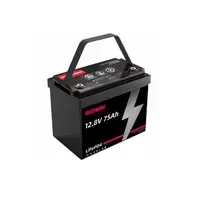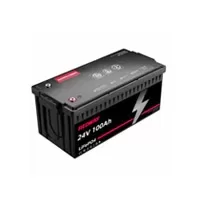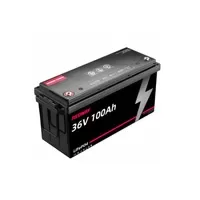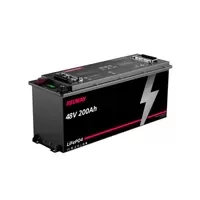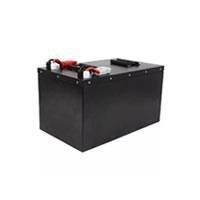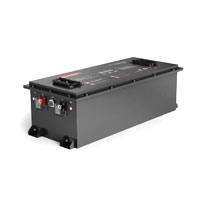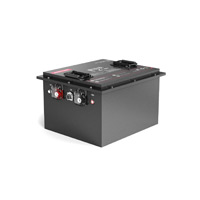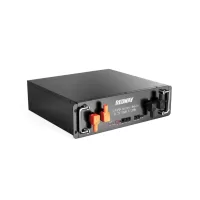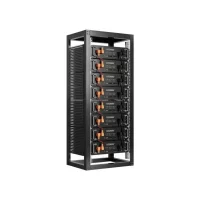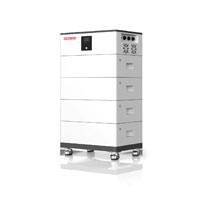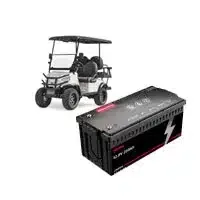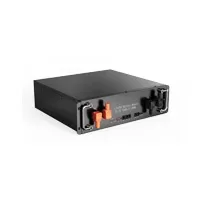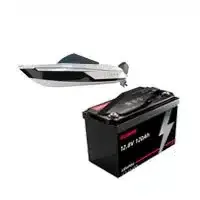Welcome to the electrifying world of batteries! As technology continues to advance at a rapid pace, the debate between solid-state batteries and lithium batteries has captured the attention of both scientists and consumers alike. These two powerhouses are vying for supremacy in the realm of energy storage, each boasting unique advantages and disadvantages. In this blog post, we will delve into the exciting world of solid-state batteries and lithium batteries, comparing their strengths and weaknesses to determine which one reigns supreme. So buckle up, because we’re about to embark on an electrifying journey!
Advantages and Disadvantages of Solid-State Batteries
Advantages and Disadvantages of Solid-State Batteries
Solid-state batteries have gained attention in recent years due to their potential to revolutionize the energy storage industry. These batteries use a solid electrolyte instead of a liquid or gel-like one found in traditional lithium batteries. This unique design offers several advantages.
One major advantage is safety. Since there are no flammable components, solid-state batteries are less prone to thermal runaway and explosions, making them safer for use in consumer electronics and electric vehicles. Additionally, they have higher energy density, meaning they can store more energy in a smaller size compared to lithium-ion batteries.
Another benefit is longer lifespan. Solid-state batteries show minimal degradation over time, leading to increased longevity and better overall performance. They also have faster charging capabilities, reducing the amount of time required for recharging.
Despite these advantages, there are still some challenges associated with solid-state batteries. One drawback is their high production cost due to the complex manufacturing processes involved. Additionally, achieving mass production at scale remains a hurdle that needs to be overcome.
While solid-state batteries offer numerous benefits such as improved safety and longer lifespan compared to traditional lithium-ion counterparts، several challenges need addressing before they can become widely adopted in various industries
Advantages and Disadvantages of Lithium Batteries
Advantages and Disadvantages of Lithium Batteries
Lithium batteries have become the go-to power source for a wide range of devices, from smartphones to electric vehicles. They offer several advantages that make them an attractive option in today’s fast-paced world.
Lithium batteries are known for their high energy density. This means they can store more energy in a smaller size compared to other battery types. As a result, devices powered by lithium batteries can be sleeker and lighter, making them convenient for everyday use.
Another advantage is their long lifespan. Lithium batteries tend to last longer than traditional rechargeable batteries, which translates into fewer replacements and reduced waste generation. Moreover, they have low self-discharge rates, allowing them to hold their charge for extended periods without losing significant amounts of power.
Additionally, lithium batteries provide excellent performance with minimal memory effect. Memory effect refers to the loss in battery capacity when it is not fully discharged before recharging. With lithium batteries, this issue is almost non-existent.
However, like any technology, lithium batteries do come with some drawbacks worth considering. One major disadvantage is their sensitivity to temperature extremes—affecting both storage and operational conditions—resulting in potential safety hazards if mishandled or exposed to extreme heat or cold.
Furthermore, there are concerns about the environmental impact of extracting and disposing of the materials used in these batteries. While efforts are being made towards recycling initiatives and greener production methods within the industry as a whole,
To summarize (without concluding), although lithium batteries possess numerous advantages such as high energy density and long lifespan while delivering outstanding performance with minimal memory effect; certain downsides need attention including their sensitivity to temperature fluctuations and potential environmental impact during extraction/disposal processes
Comparison between Solid-State Batteries and Lithium Batteries
Solid-state batteries and lithium batteries are two popular choices when it comes to energy storage. Let’s take a closer look at how they compare.
First, let’s talk about size and weight. Solid-state batteries have the advantage here, as they can be much smaller and lighter than their lithium counterparts. This makes them ideal for portable devices like smartphones or wearables.
Next, let’s consider safety. Solid-state batteries are known for being more stable and less prone to overheating or catching fire compared to lithium batteries. This is because solid-state batteries don’t use flammable electrolytes like lithium-ion ones do.
When it comes to charging speed, both types of batteries offer quick charging capabilities. However, some solid-state battery designs claim even faster charging times compared to lithium-ion options.
In terms of energy density, traditional lithium-ion batteries still have the upper hand. They can store more energy in a given space compared to current solid-state battery technologies.
Let’s touch on cost and production scalability. At present, solid-state battery technology is still relatively new and expensive compared to established lithium-ion systems which benefit from economies of scale in production.
As you can see, each type has its own advantages and disadvantages depending on specific needs and applications. It will be interesting to see how future advancements in solid-state battery technology could potentially bridge the gap between the two options
Current Developments in Solid-State Battery Technology
Current Developments in Solid-State Battery Technology
In recent years, there have been significant advancements in solid-state battery technology, propelling this innovative energy storage solution into the spotlight. Researchers and engineers worldwide are now pushing the boundaries of what solid-state batteries can achieve.
One exciting development is the improvement in energy density. Solid-state batteries offer a higher energy density compared to traditional lithium batteries, meaning they can store more energy within a smaller footprint. This opens up possibilities for smaller and lighter devices with longer-lasting power.
Another area of focus is enhancing stability and safety. Solid-state batteries eliminate the need for liquid electrolytes found in lithium-ion batteries, which reduces the risk of leakage or fire hazards. By using solid electrolytes instead, manufacturers are working towards creating even safer energy storage options.
Additionally, researchers are exploring ways to enhance charging capabilities. With faster charging times becoming increasingly important to consumers’ convenience, scientists aim to develop solid-state batteries that can be charged at rapid rates without compromising their performance or longevity.
Furthermore, efforts are being made to improve manufacturing processes and reduce costs associated with producing solid-state batteries on a large scale. These advancements may ultimately make this technology more accessible and affordable for various applications beyond consumer electronics.
The continuous development of solid-state battery technology holds immense promise for renewable energy integration as well. By storing excess renewable energy generated from sources like wind or solar power efficiently through advanced solid-state battery systems, we can overcome some challenges related to intermittent supply and demand mismatches.
As research progresses further into this field, we anticipate breakthroughs that will address current limitations such as cycle life and production scalability while unlocking even greater potential for these next-generation power storage solutions.
Stay tuned for future updates on how solid-state battery technology continues its evolution toward revolutionizing our lives!
Future Potential for Solid-State Batteries
Future Potential for Solid-State Batteries
The development of solid-state batteries holds great promise for the future of energy storage. With their unique design and composition, these batteries have the potential to revolutionize various industries and improve our everyday lives.
One of the most exciting aspects of solid-state batteries is their increased energy density. Unlike lithium-ion batteries, which rely on liquid electrolytes, solid-state batteries use a solid electrolyte material. This allows for higher energy storage capacity in a smaller package, making them ideal for applications where size and weight are critical factors.
In addition to increased energy density, solid-state batteries also offer improved safety compared to traditional lithium-ion batteries. The absence of flammable liquid electrolytes reduces the risk of fire or explosion and makes these batteries suitable for use in electric vehicles and other high-demand applications.
Furthermore, solid-state batteries have longer lifespans compared to lithium-ion counterparts. The stability provided by the solid electrolyte minimizes degradation over time, resulting in extended battery life cycles. This not only saves consumers money but also reduces electronic waste generated from frequent battery replacements.
Another area where solid-state battery technology shows promise is fast charging capabilities. Current charging methods can be time-consuming; however, with advancements in materials and design techniques, it is anticipated that solid-state batteries will significantly shorten charging times while maintaining efficiency.
The potential applications extend beyond consumer electronics and transportation sectors as well. Solid-state battery technology could play a crucial role in renewable energy systems by providing efficient energy storage solutions at both small-scale residential installations and large-scale power grids.
While there are still challenges to overcome before widespread adoption can occur – such as manufacturing scalability and cost reduction – ongoing research efforts show promising results towards addressing these hurdles.
The future looks bright for solid-state battery technology. As researchers continue to make breakthroughs in materials science and engineering processes, we can expect even more significant advancements that will shape our world’s energy landscape positively
Conclusion: Which is the Better Choice?
Conclusion: Which is the Better Choice?
After a thorough analysis of both solid-state batteries and lithium batteries, it is clear that each type has its own set of advantages and disadvantages. Solid-state batteries offer improved safety, higher energy density, faster charging capabilities, and longer lifespan. On the other hand, lithium batteries are more commercially mature, less expensive to produce, and currently dominate the market.
While solid-state battery technology shows great promise for the future with ongoing research and development efforts focused on overcoming current limitations such as manufacturing scalability and cost-effectiveness, it is not yet ready to replace lithium batteries entirely.
Lithium batteries have been widely adopted in various industries due to their proven performance and relatively low production costs. However, they still face challenges related to safety concerns associated with thermal runaway incidents.
Considering these factors, it can be concluded that while solid-state batteries hold immense potential for revolutionizing energy storage technology in the coming years, at present Lithium-ion remains the dominant choice for many applications due to its maturity in terms of commercial availability.
In conclusion (oops!), both types of batteries have their own merits depending on specific requirements. The decision between using a solid-state battery or a lithium battery ultimately depends on factors such as application needs, budget considerations, safety requirements,and timeline constraints.
As technology advances further and researchers continue to make breakthroughs in solid-state battery development,it’s likely that we will see an eventual shift towards this newer form of energy storage.
However,the transition may take some time.
Meanwhile,lithium-ion batteriestill serveas an efficientand reliable power sourcein countless devices around us.
So whether you’re powering your smartphone or driving an electric vehicle,you can rest assured knowingthatlithium-basedbatteriesare here today,but exciting advancements lie just overthe horizonwithsolid-statebatterytechnology!
Related Posts
- Zapping the Voltage: A Simple Guide to Multimeter Testing for AAA Battery Voltage
- Will solid-state batteries replace lithium?
- Will Batteries Last Longer in the Freezer? Answers to Your Freezing Battery Myths!
- Will batteries last longer in the freezer?
- Why you shouldn’t charge your phone overnight?
- Why would someone put batteries in the freezer?


